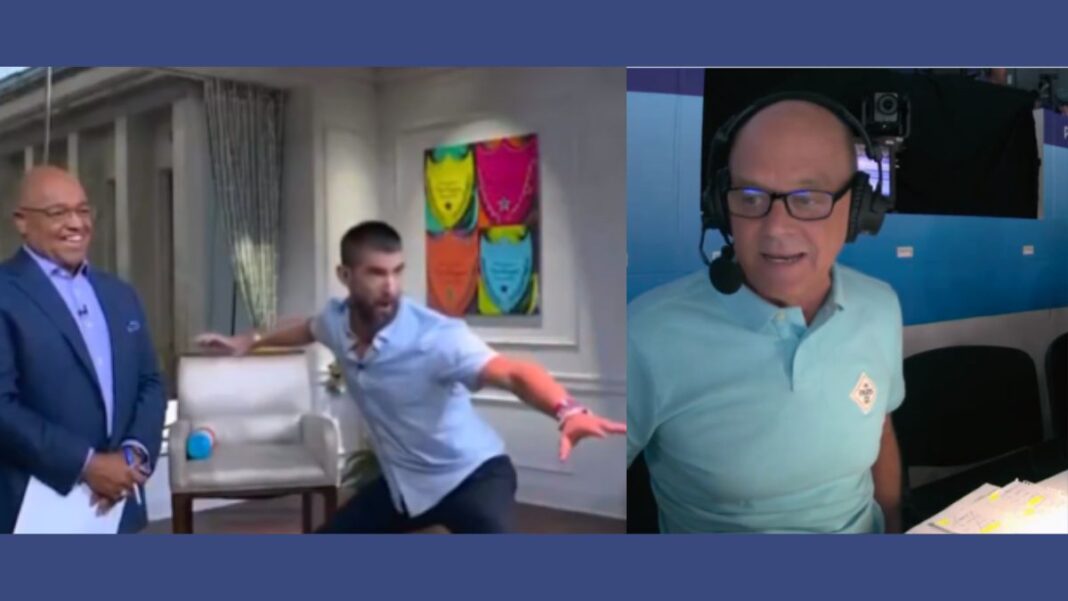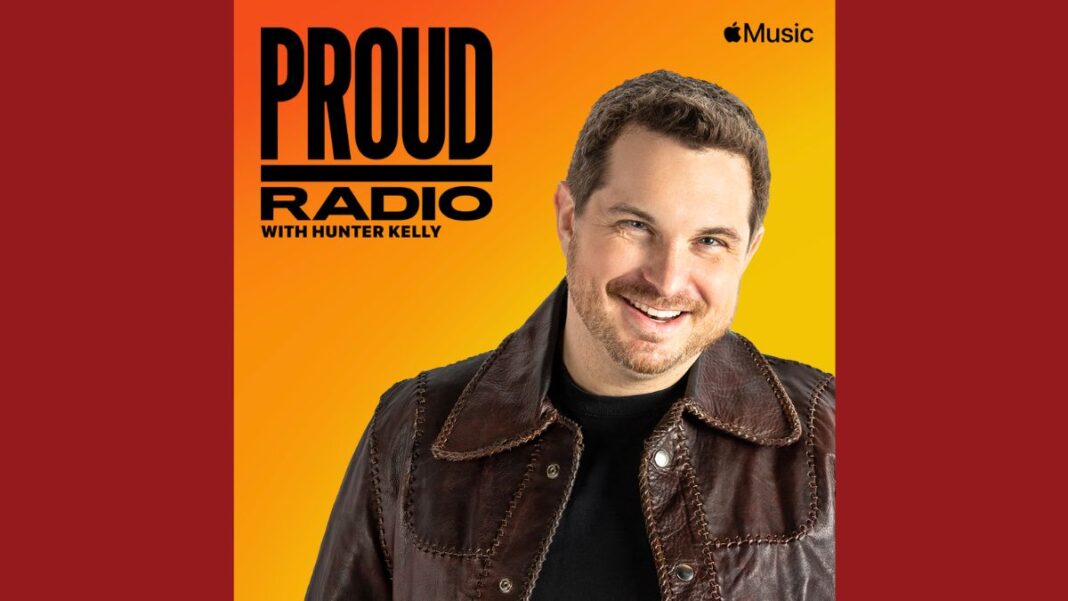There’s no way NBC Sports can find another Rowdy Gaines to call swimming, which is why Gaines’ announcement that the 2028 Los Angeles Games will be his swan song is such a gut-punch. We judge most Olympic commentators by how they do once every two or four years, and we make those judgments pretty much snap-instantly – and even by that arbitrary standard, Rowdy is a treasure.
So no, there won’t be another Gaines. But maybe there doesn’t have to be.
There just needs to be a first Michael Phelps.
I enjoyed almost all of NBC’s broadcast work in Paris, but Phelps felt like a revelation. His studio work with Mike Tirico was stellar, and his ability to get into the nuances of the swim competition without drowning people in minutiae allowed viewers to feel that they’d been let through a side door to the venue itself.
Phelps easily broke down not only the races once they’d happened, but also how certain swimmers had trained or adjusted their training to tailor to their Olympic moments, how their race strategy might be created or evolve – even how they scouted their opponents based on past head-to-head competition. He used his own experience to help color all that, and he didn’t hold back about his own adventures at the Games, for better and for worse.
Phelps knows all about this stuff, and he should. He’s the most decorated Olympian of all time, with 28 medals, 23 of them gold. At the 2008 Beijing Games, one of five Olympics for which he qualified, all eight medals Phelps won were gold – an all-time record to set alongside his other all-time records.
Still, we’ve seen countless wonderful athletes pull up lame when they got on camera. That’s certainly not fatal – I’d argue that seeing a superstar fail as a broadcaster only emphasizes that the job isn’t as easy as great announcers make it look – but it makes Phelps’ success on air all the more notable.
It’s hard to overstate Tirico’s contribution here, because Tirico excels at making studio mates look good. But Phelps’ authenticity carried his segments. The most fun might have been seeing replays of Phelps in the studio as he watched the swim events unfold on monitors before him. He’s just unapologetically hypnotized by the sport still, and the shouts and fist-pumps accentuated that truth.
In that regard, he’s got a little Rowdy Gaines in him. Gaines’ over-the-top reactions and expressions while calling international swim events have long been documented, and they’re the reason NBC has for years had a Rowdy Cam fixed on him for the big events, including the Paris Games.
But Gaines’ histrionics wouldn’t matter if he weren’t so good at his job. His uber-preparation for these events extends well beyond the U.S. swimmers to the international field at large. He could humanize foreign swimmers in such a way that American viewers, who’d likely never heard of most of them, still could find something to be interested in – even a rooting interest, sometimes. At the least, Gaines let them know more about the person that their favorite U.S. swimmer was trying to beat.
Gaines will be 69 years old by the time Los Angeles 2028 rolls around, and after those Olympics, he said in a recent Instagram post, “I’m riding off into the sunset of full time grandparent.” He’ll thus be concluding his NBC service four years from now in the city where he won three swimming gold medals himself at the 1984 L.A. Olympics, a perfect and well-earned sort of symmetry.
It’s never easy to replace someone who has become synonymous with the Olympic portion of a sport. Gaines and rock-steady play-by-play announcer Dan Hicks have handled the swim venue for NBC together since 1996, a remarkable run when you consider the vagaries of staying in broadcasting at all, much less in a coveted niche, for nearly three decades.
In Phelps, though, the network has a logical, worthy successor – someone who knows the sport, brings full gravitas to the job and isn’t fazed by being on camera. The network has four years to walk up to a transition that won’t really occur for four years after that, and if Phelps is interested, they’ve also got a significant head start on the process.

Mark Kreidler is a national award-winning writer whose work has appeared at ESPN, the New York Times, Washington Post, Time, Newsweek and dozens of other publications. He’s also a sports-talk veteran with stops in San Francisco and Sacramento, and the author of three books, including the bestselling “Four Days to Glory.” More of his writing can be found at https://markkreidler.substack.com. He is also reachable on Twitter @MarkKreidler.









